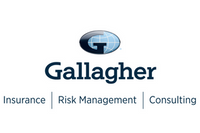5 way employers can support neurodivergent employees via benefit programmes
Everyone is unique and our brains all work differently. Neurodiversity encompasses the range of differences in individual brain function and behavioural traits, regarded as part of the normal variation in the human population.
Neurological conditions, such as dyslexia, dyscalculia, attention deficit hyperactivity disorder (ADHD), and autism spectrum disorder (ASD) are now more commonly recognised. In recent years, many companies have come to better understand the skills neurodivergent employees can offer, including in pattern recognition, memory and mathematics.
Accessing diagnosis
While neurodiversity is being more widely discussed in workplaces (as well as in the wider community), there continues to be a notable number of adults still undiagnosed, not only due to accessibility of diagnosis, but also due to societal pressures. Some people may also be concerned about a potential impact on their career.
For those undiagnosed adults, this may have meant many years of constant feelings of anxiety, bouts of depression and cycles of burnout, as well as challenges with sleep.
How has the healthcare market developed in supporting neurodiversity?
Well, not very much, it could argued.
While some healthcare providers say they will pay up to diagnosis, this is often not clear in their terms and conditions. Additionally, our experience has shown that if a GP referral letter makes any suggestion that the referral may result in a neurodivergent diagnosis, or the referral includes a full physiological or educational assessment, it’s likely the provider will decline the claim.
Some larger corporate clients have taken to supporting diagnosis by incorporating a bespoke fund within their benefit design, but this brings its own problems. Many providers don’t have a developed network of consultants they can recommend, which leaves the individual to navigate the system without support, unless their GP has specific experience in this area and knowledge on how/where best to obtain a diganosis privately.
Even where a diagnosis is made, however, a private medical insurance (PMI) scheme will not usually cover any ongoing treatment or support – either under the standard ‘chronic conditions’ exclusion applying to most policies, or under a specific exclusion for conditions of this nature.
Additionally, where a diagnosis has been made privately rather than via the NHS and results in a requirement for ongoing consultations and drugs to manage the condition, it’s likely that the individual will also not receive any support via the NHS.
The market has, perhaps, become more understanding of the clinical needs of someone with a neurodivergent condition in supporting the frequently co-existing mental health conditions such as anxiety and depression.
Is private healthcare the answer?
Arguably there appears to be a demand for PMI providers to look to support diagnosis and certainly they are reviewing this closely.
However, when it comes to supporting employees in the workplace, there are many other ways that an employer can provide support, often within employee benefit programmes:
1. Occupational health (OH): Quite often a good OH provider will have knowledge of the right specialists in this area and some may partner with a specialist company that’s able to not only obtain assessments, but also think about adjustments that can be made to the working environment and provide a management training programme.
2. Employee assistance programme (EAP): Your EAP will likely offer an online hub of varying information, which can include guidance to understanding and supporting colleagues with a neurodivergent condition. Support for managers is also usually available, which can assist in improving understanding and approach.
3. Group income protection (GIP): Your GIP provider may also provide manager guides and partner with a specialist that can offer guidance in workplace adjustments.
4. Digital tools: Both healthcare and GIP providers offer value-add digital tools which can assist with management of mental health conditions.
5. Charities: Several UK charities focus on neurodiversity, offering information and support to better improve understanding. For example, the ADHD foundation offers an employer’s guide to ADHD in the workplace.
More than anything, companies need to recognise neurodiversity as a social category similar to ethnicity, sexual orientation, gender, or ability. This will allow them to create a culture of education and openness for employees to feel empowered and allow them, and the business, to reach their true potential.
Amanda Cran is principal and healthcare proposition leader at Buck
Laura Brown is senior consultant at Buck
Supplied by REBA Associate Member, Gallagher
Gallagher is a global, integrated HR consulting, benefits administration & technology services provider.








